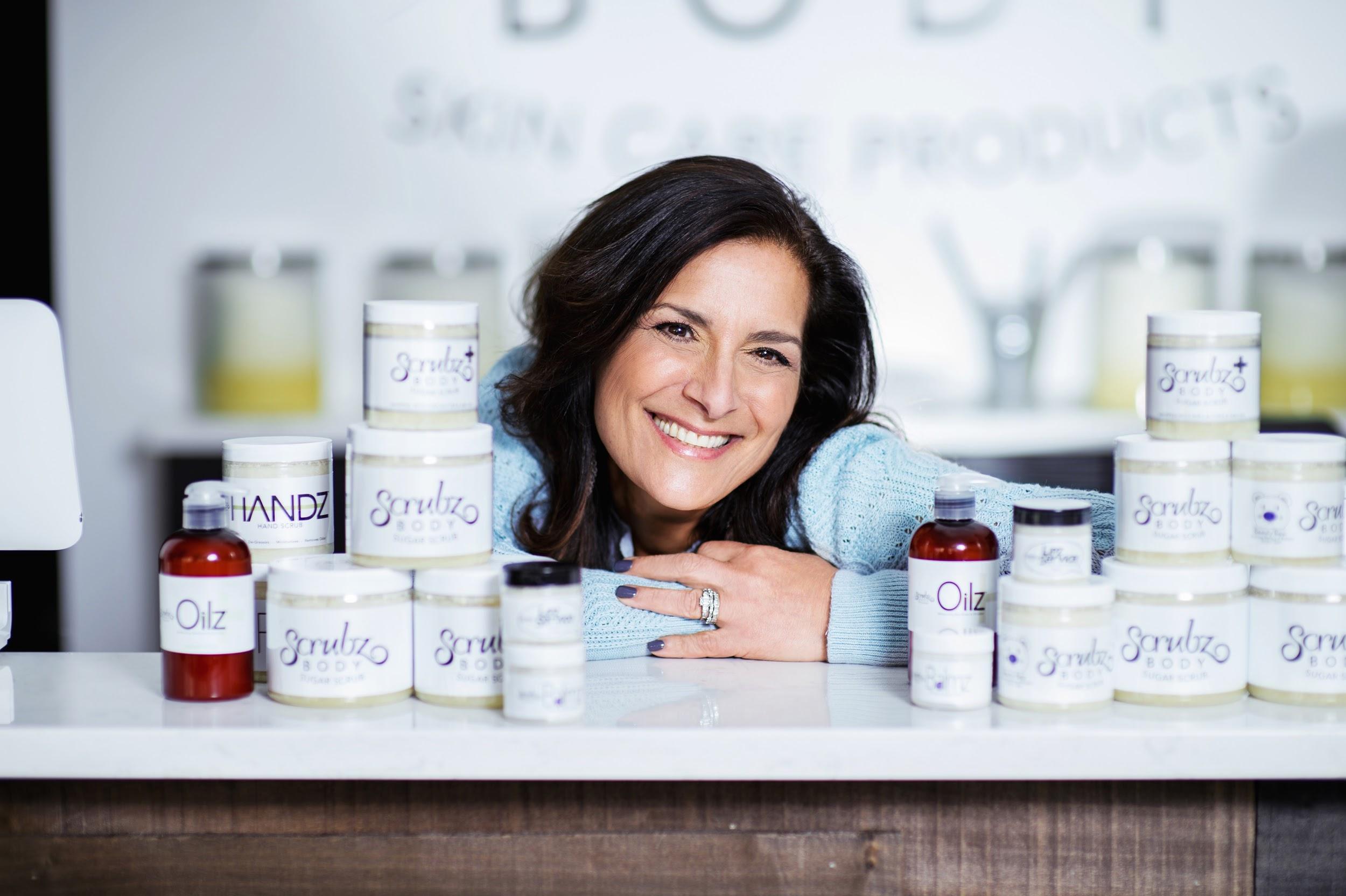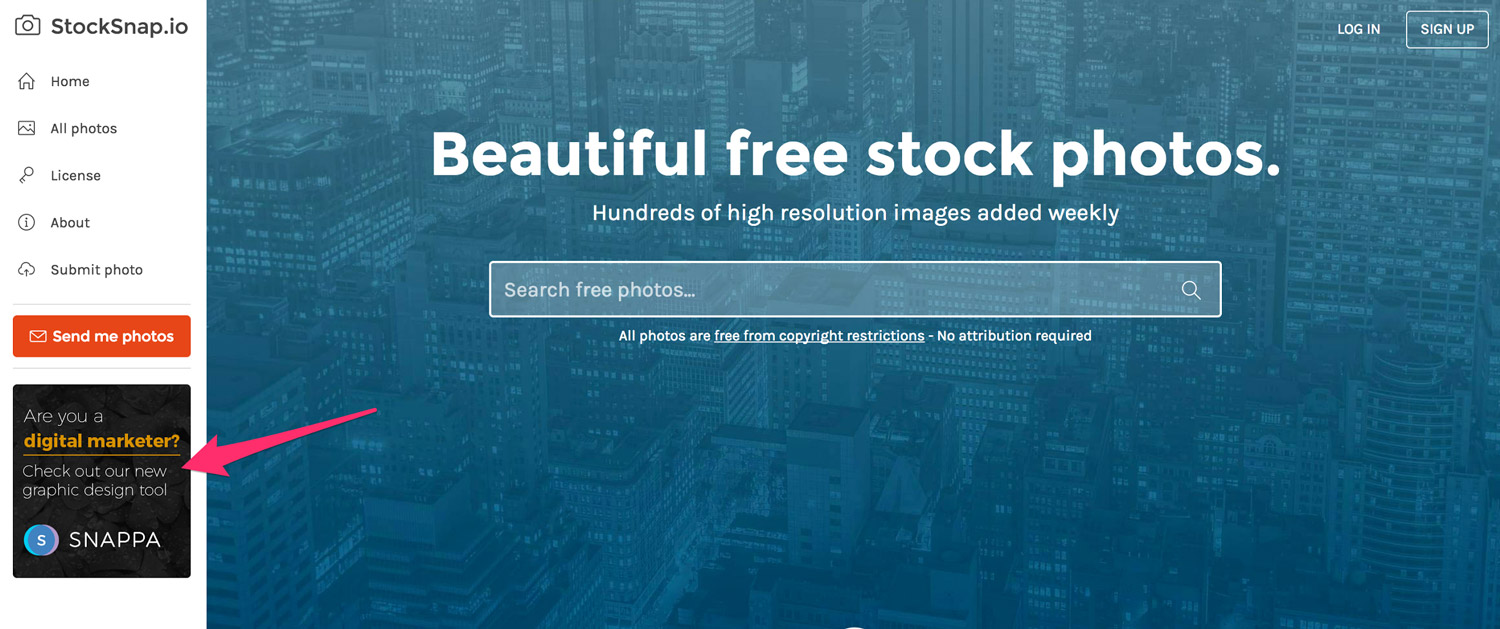How To Come Up With An Idea For Your Business
Capitalize on a new trend
Some of the best ideas come from finding a new trend and building a business around that.
Because trends are inherently new, the market is less crowded and there may be less competition.
For example, in 2018, CBD was a very trendy topic. Evan Marshall, of Plain Jane, capitalized on the trend of CBD:
When 2018 rolled around, I quit my job and Duane flew out to California.
In college, we figured out a way to remove the smell and harshness from cannabis. We read about it on some online forums and thought it’d be interesting to try out. It ended up by far being our favorite. We could smoke it without smelling strongly like weed and it caused much less throat irritation. We thought this would be a pretty cool thing to work on and we didn’t really see any products that offered less smelly weed products that don’t make you cough.
Our friend, Lindsey suggested looking into CBD products. The more we learned about CBD, the more the excited we became. CBD provides many of the physical benefits associated with cannabis without the intoxication. Lindsey has since joined us as a founder and is constantly help us develop new CBD products.
Since I had struggled with smoking cigarettes since college, we created a non-addictive alternative and that’s our flagship product. A low smell, ultra smooth, CBD-rich hemp cigarette.

Or another example is Eric Bandholz of Beardbrand, who capitalized on a men's fashion trend early after going to a meetup:
It was after attending an event with other bearded individuals similar to me that I realized there was an entirely new group of beardsmen. I coined the term “urban beardsman” to describe myself and people similar to me. An urban beardsman is a typical dude who doesn’t fit the traditional stereotypes that come with a beard.
Beardbrand was created to unite urban beardsmen and give them the tools they needed to feel confident about being themselves. That meant creating a lot of content (blog posts, videos, and talking on podcasts).
Just get started
Another thing that I see from a lot of people that want to start a business is that, simply, they never get started.
They are too concentrated on a good idea, and months go by looking for that great idea - and sometimes it never comes.
Sometimes it makes sense to just get started. For example, Gino Ferrand, who runs an $1M+/year recruiting business started out just offering his own services, and slowly pivoted into a full-fledged business.
In his own words:
The business really came about as a response to companies requesting my recruiting services personally. A few friends who had founded companies and were looking to hire engineers (remote or in-office) asked me about consulting with them to help them recruit remote talent. This in time turned into what TECLA is today.
By no means has our growth been “explosive”. In any way. It’s been stable and consistent. Growing the business anywhere from 20-40% YoY for the past six years. But always growing, and always doing it profitably.
I have to admit that, initially, this was a bit frustrating. I spent a lot of time thinking about ways that we could grow much faster. Modifying marketing campaigns, channels, messaging, and pretty much everything about our customer acquisition strategies. This led to great small pivots that we have made throughout the past years, but nothing led to the explosive growth that sometimes entrepreneurs expect from startups these days.
Pick something you're passionate about
Starting a business can be really fun and motivating, but what about once you're months deep into starting and the novelty has worn off?
It's important to pick something that you're passionate about because it will help you stay motivated when times get tough.
And if you're passionate about something, it means you can be an "expert" on that topic, which may help your business be more successful.
Oliver Anwar was so passionate about his own personal fitness that he turned it into a business:
Growing up as a kid I was always active and fit and had a huge passion for football (soccer). I played a high level of football for most of my child/teen years – playing for both Bristol City Academy and Bristol Rovers Centre of Excellence growing up (this is the highest level of youth football in the UK). When I got to 16/17, I, unfortunately, didn’t make it as a professional footballer so began starting to train in the gym and I realized early on this was something I was going to invest my life into.
I was sat on a friend's sofa one summer and he was looking on his laptop at domains. He told me that the website www.roanwarfitness.com was available for £0.01. Having experience training myself and friends and family I saw an opportunity to begin a blog to share my fitness story. Over summer as I built this website purely by myself, I realized I could create a business from selling online training and nutrition plans and therefore coaching people online.
For the first year, I trained my close friends and relatives for free and gave them personalised coaching to obtain feedback, transformations and testimonials.
This helped me validate the products and give myself and my business credibility.
I set my business up when I was at university and a student, so I didn’t have much capital at all. I was working part-time and studying but luckily my business did not need much startup capital. Just enough for a website.

Write down 10 ideas per day
I'm a big fan of James Altucher's 10 ideas a day exercise.
Literally grab a notebook and every single day, ask yourself one question that drives 10 business ideas. Even if you do it for only a week, that's 70 ideas. Over 30 days, that's 300 potential ideas.
Example questions...
- What are the top 10 businesses I would LOVE to build?
- What are the top 10 biggest day-to-day challenges in my life?
- What are the top 10 topics I'm most interested?
- What are the top 10 businesses I DON'T want to do?
- What are the top 10 brands I love the most?
- What are the top 10 things I like to buy/consume the most?
- What are the top 10 things I love to do?
...etc
Then, it's a game of nailing down what makes you excited, what makes most sense financially, and what fits your strengths/opportunities.
After all of that, you'll probably end up with 2-3 ideas.
From there, it comes down to the one that will have the best chance for success, fits your long-term goals, and you're most excited about. In other words, the one that has the best positioning, distribution, and logistics, while costing the least time and money to test and then run.
Write down the criteria for your dream business
After a failed business, Colin from Sheets & Giggles ($78k/month) decided to write down the criteria for the right business:
After that experience, I decided that the timing was about as good as it was going to get for me to found a company: I had a great CO network, had just been through Techstars, was on the founding team of a company that launched two crowdfunded physical products at nationwide retail, and had built a skill set in marketing and distributing physical products. That said, I didn’t have much money in my bank account (working at startups will do that to you), and I didn’t want to raise VC right off the bat, so I knew I had to do a crowdfunding campaign.
My criteria for a new business
I decided that I needed my own physical product brand to sell, and I started by listing the criteria for my new company. I wanted:
- A large commodities market (so I didn’t have to build a category out of thin air), but one that I could differentiate meaningfully in.
- A highly fragmented market with no clear leader
- A market with no brand loyalty or affinity
- A market with little brand differentiation
- A product that was traditionally physical retail that I could help bring online with a DTC model
- A product with a low-complexity supply chain (i.e., no electronics or software components)
Solve your own problem
Solving your own problem is a very common way businesses are born. Whether that's something at work, in your home, or on your computer - if you have the problem, there's a really good chance someone else does!
For example, Harris Derner was looking for a way to solve his hangovers. He found a special remedy:
In 2015, when I figured out Pickle Juice was curing my hangovers, I looked everywhere to find a drinkable pickle brine, but it did not exist.
It took me a couple months to realize that pickle juice was the main reason I was not getting a hangover. When I went out and took over 3 pickle back shots, the next morning I felt great.
We invested a total of $11,000 in 2016 and had a business valuation of $200,000 3 years later.
This led me to drinking the leftover juice in pickle jars before I went to sleep after a long night out. After chugging countless pickle jars, throwing out pickles, and straining all the seeds, I searched for a drinkable pickle juice and to my amazement I couldn't find anything.
I talked to Mike (who had just got his MBA from Haas School of Business at Cal Berkeley) about the possible endeavor and then we were on a mission to take every pickle back shot in NYC.
Fortunately, we didn’t have to go to 10,000 bars to realize they had the same problem as us. Every single bar we went to used the same unsanitary pickle juice in a plastic quart that they would usually grab off the floor. We knew we had something with our idea.
Brine Brothers started as a passion project but we always knew it was bound to catch fire.
Scratch your own itch
Similar to solving your own problem, scratching your own itch means to create a business based on what excites you.
Would you like to see a certain product exist? Make it!
That's what Roberta did for her skin care business:
I started making the sugar scrub for my own personal use. I had an epiphany moment at a bath and body store after literally scratching my itchy dry skin so much I made it bleed. The woman at the shop introduced me to exfoliating scrubs. Then, like Goldilocks, I was on a quest for the best one. Not too greasy, not too coarse, not too stinky.
When I couldn’t find exactly what I was looking for, I decided to create my own. I did so much research at the library and online, trying to figure out which of the botanical oils that appeared on the jars I had purchased were the best. I settled on eight because each oil really brings something else to the recipe.

I worked out of my kitchen, then moved to a renovated garage for 5 years. In 2011 we rented an 800 sq. ft. store front and then 3 years later moved to almost 1400 sq ft. in the heart of that same town. In November of 2017 we moved again, this time to brand new space in Farmingdale, an upcoming and thriving town in the heart of Long Island. We were able to truly design the space according to our needs.
Use your existing business
Do you already have a business? Maybe there is another opportunity inside there?
Or maybe you've worked in an industry for years? Can you idenitify a business opportunity, or even potential clients through that?
For example, Christopher Gimmer built a $55K/month graphic design app based on a stock photo blog he had:
Fortunately, around this time, I wrote a blog post about where to find free stock photos that went viral and started ranking on the first page of Google. Because of that, we created our own stock photo site called StockSnap.io (we’ve since sold this as well) which started generating a lot of traffic.
Now that we had an audience to market to, we promoted Snappa on StockSnap.io using a simple banner ad and sent this traffic to a landing page where we collected email addresses.
Once we got a few hundred people opted-in, I sent out a few surveys and did 15-20 customer interview calls to validate the idea. Once we were convinced that Snappa was something people wanted and were willing to pay for, Marc got to work and started building the prototype.

Talk to (potential) customers
Maybe you have a rough idea of what kind of business you want to start, but it's not all there.
Talking to customers (before you build anything) can help you find an idea.
And sometimes, not talking to customers can invalidate an idea you thought was good:
The biggest lesson I've learned in the launch period is that you need to put the customer in the center of the business. As Aykut always told us, "No assumptions, no overthinking." I'll talk to the customer after launching the product is the wrong idea. Even when nothing is available from the beginning, you must talk to potential customers and get feedback from them. New products and features should be decided together with the customer.
Solve a problem for a niche audience
A great way to come up with a business idea is to build or sell products to a very niche audience.
The more niche an audience, the less likely there will be competition.
Here's a great example, with the niche being air traffic controllers:
To be honest, the product came together itself because the idea of having authentic airspace printed on clothing was a very specific and strange niche.
The market research required was already encapsulated within our own fan base. That is to say, we just had to post a few mock images, and gauge the reaction from our already loyal fans.
This is perhaps one of the single biggest advantages in the modern world of social media. There is little risk of doing some basic market teasing and testing if you’ve already won over the attention of the audience through other means, memes in our case.
If we had tried to do it the other direction (that is, sell something before building the rapport of an entertainment page), I don’t think it would have worked; or at the very least, it wouldn’t have been as successful. People want to establish a relationship with your brand and in 2018, sometimes this means they want to get to know the people behind the page. Entertainment (specifically humor) on social media offers a sort of social bond that blatant, old-school marketing cannot achieve. It was the glue that established the framework for the entire business itself.

Embrace competition
Have a great idea but found out someone else already took it? That's fine!
One thing you'll realize is that there are thousands of companies doing the same thing. There's often enough market for many companies to survive.
For example, Justin Clark saw an opportunity after a very successful Kickstarter launch:
In May 2017 just after finals ended (Just after our busiest time for whiz tutor), I came across a Kickstarter campaign called Romphim; it was a couple of guys trying to launch the men's romper. They essentially wanted to raise $10,000 to get their project going, but by day 3 they already raised $330,000! I was blown away!! The first thing that popped in my head was product-market fit. They had this instant explosive traction and they didn’t have a single competitor.
So I gave them a competitor, MEEEE 😎. I remember that day calling a couple of friends and quickly asking them for some funding that would be used to help design the rompers and buy inventory. After about a minute of me pitching them, they all happily agreed. Also, My other Whiz Tutor Co-founders all agreed to help as well.
That was the day the idea was born.
Use Starter Story!
At Starter Story we have interviewed over 1000 founders on how they started their business.
You can sort, filter, search through many ideas here.
Good luck finding your next idea!
So you want to start a business but you don't have a good idea?
Don't worry, you are not alone! This is probably the most common thing that we hear from readers at Starter Story.
Finding a "good idea" is not only hard, but it's a really big decision. Once you pick something, you might be stuck with it for a while - so it's important to make sure you do your due diligence.
In this post, we'll go over some ways to find an idea with real-world examples from proven entrepreneurs.

Download the report and join our email newsletter packed with business ideas and money-making opportunities, backed by real-life case studies.

Download the report and join our email newsletter packed with business ideas and money-making opportunities, backed by real-life case studies.

Download the report and join our email newsletter packed with business ideas and money-making opportunities, backed by real-life case studies.

Download the report and join our email newsletter packed with business ideas and money-making opportunities, backed by real-life case studies.

Download the report and join our email newsletter packed with business ideas and money-making opportunities, backed by real-life case studies.

Download the report and join our email newsletter packed with business ideas and money-making opportunities, backed by real-life case studies.

Download the report and join our email newsletter packed with business ideas and money-making opportunities, backed by real-life case studies.

Download the report and join our email newsletter packed with business ideas and money-making opportunities, backed by real-life case studies.
